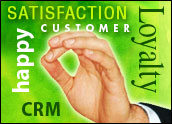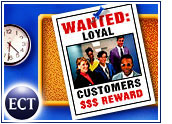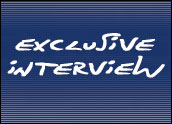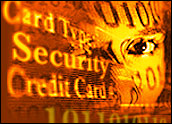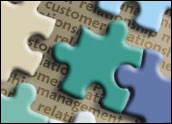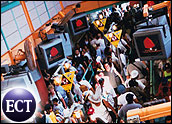
A new report on the loyalty of companies to their IT suppliers might change what goes on inside some of the world’s IT innovators.
From its survey of 51 brands, Walker Information of Indianapolis, Indiana, concluded that customer satisfaction does not equal customer loyalty. Suppliers’ interactions with clients in the past do not predict the strength of their relationships with those clients going forward.
Walker conducts a host of research on the behalf of its customers, many of them from the IT industry. This survey, however, tries to set broad benchmarks by which the entire industry can measure itself.
Past and Future
“Satisfaction is not a bad measure, it’s just not a complete measure,” cautioned Michael DeSanto, a Walker spokesperson, in discussing the survey results with CRM Buyer. “It deals with the past experiences of customers, and customer loyalty tends to project more about future relationships.”
The research found that fewer than half (44 percent) of all IT customers show true loyalty by planning to stick with the provider into the future. “I think what IT companies should learn from this study is that customer loyalty matters, and understanding customer loyalty will have an impact on the company’s bottom line,” DeSanto said. “Customer loyalty is directly tied to financial success.”
Walker’s survey broke companies into three categories: Loyalty Leaders, Loyalty Limbo-ers and Loyalty Laggards. Walker defined each group by its average operating margin — 12 percent for the top tier, 6 percent for the middle tier and negative 11 percent for the IT suppliers most in need of new ways to measure success and improve their customer relationships.
Survey Says
According to Walker, three out of 10 IT customers are trapped in a relationship in which they have little commitment but a strong likelihood to trudge onward with the supplier. An almost equal number, 23 percent, expressed a low commitment to their supplier and little intention of remaining in the partnership.
Customers of Cisco, Dell, EMC, IBM, HP, Microsoft, Network Appliance, Oracle and SAP by and large don’t belong to the unhappy ranks and likely won’t fall down into the Loyalty Limbo or Loyalty Laggard groups because their brands drive growth in their business, said DeSanto. These elite players in the industry know how to prove return on investment and work day and night to hold onto current customers and keep prospects coming in the door.
“Loyalty Leaders outperform other companies in every category measured, in operating income growth, in sales revenue, not only financially but also in service performance,” he said. “There’s only one area in which Loyalty Laggards did better — in price. Loyalty Leaders have more command of all elements of their customer relationships, so they’ve earned the right to charge a premium,” he said. Loyalty Laggards get the price-sensitive cherry pickers.
Laggards and Leaders
EMC, a storage systems and software provider in Hopkinton, Massachusetts, emerged as a Loyalty Leader.”First and foremost, we have a highly customer-centric culture here. Every employee, from the mailroom to senior management, is asked regularly how their actions are serving customers,” said Greg Eden, an EMC spokesperson. Annual surveys of employees help management determine the strongest corporate functions in serving customers and those in need of improvement.
But EMC makes sure that satisfaction carries over into future relationships with clients, not only in storage systems but in the newer software products coming out of the company. And here Walker’s brand assessment found a shining star. As EMC has expanded its offerings into software, it has expanded its relationships with current customers.
Eden said that this is the result of a strong brand that communicates a commitment to customer service and a willingness to put client partnership above short-term revenue. At EMC, he said, the customer service department is considered an “investment center” rather than a cost center. That distinction allows reps to make decisions on the fly to satisfy customers without delving into the nickels and dimes EMC could save with an alternative solution.
The efficiencies can’t take the front seat, he said. “How hard is it to even talk to a real live person in customer service? Everything is automated to eliminate some cost.” EMC, he says, takes a very different approach, and it pays off.


